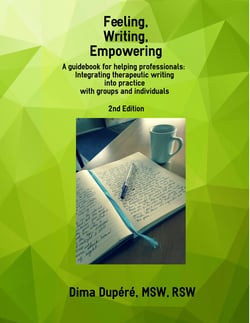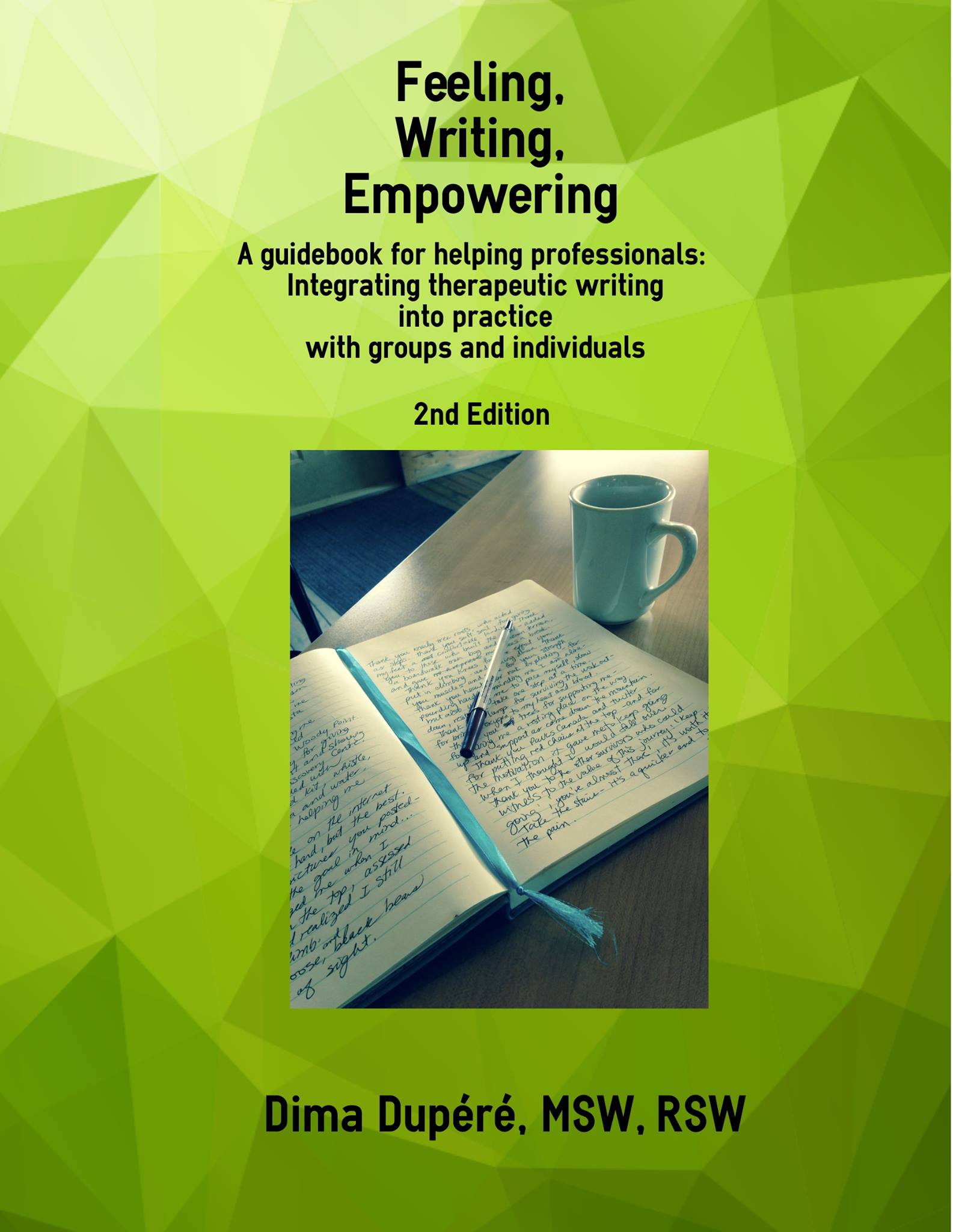by Dima Dupere
Journaling is a wonderful way to learn about ourselves. Expressing our thoughts and feelings, collecting memories, working through difficult situations, exploring our spirituality, letter writing, or reviewing our day: those are all beneficial.
Though the expression is crucial, I would add that a post-writing reflection can help you take your experience one step further.
Suppose you are writing about a difficult event happening in your life. You can approach it through whatever writing technique you choose: automatic writing, a dialogue with a particular aspect of that situation (ex . writing with my need to control), telling the story of what is happening, writing a letter to one of the people involved, etc. You then have the choice to close your journal and put it away or you can take some time to reflect (note that the reflection can be done later).
Take a few deep breaths. Slowly reread what you have written and then complete the following sentences:
I didn’t know that……
I realize that…
What I need is…
This reflection will invite you to be more compassionate towards yourself and look beyond the strong emotions or details of the situation. It can help you take a step back and see more clearly and, most importantly, it can encourage you to stop and ask yourself “What do I need? “ “Can I give that to yourself?” “Who/what will help me?” This step invokes action.
When I propose a journal writing exercise to someone, or offer one in a group, I always invite participants to finish their writing with those three statements. It gives the exercise a sense of closure or can open up another area to look at.
Another addition to this reflection is what I call the MOSS. In my book, Feeling, Writing, Empowering, I present the MOSS as a way for individuals to situate themselves in the present, or in an event they want to write about. MOSS was adapted from the ‘dimensions’, explained in the Journal Writing work of Ira Progoff. I tried to clarity these in a way that felt more tangible.
MOSS refers to four relational schemas that are part of our lives. Looking at these and identifying what is in our ‘MOSS’ helps us have a greater understanding of ourselves.
M - Refers to Me. What is my relationship with myself? It includes my emotions, my personality, my health, my attitudes, my body, etc.
O - Refers to Others. Who are the people currently in my life (family, friends… can also be people who affect you like coworkers, etc)? Who are those who are no longer there because of absence or death whose influence still touches me? Who do I miss and want to have close?
S- Refers to Systems and Structures. These can be physical structures or objects (the bank, the gym, the school), or can be more symbolic in nature (money, rules of society, policies, the law).
S- Refers to Senses and Sensibilities. This refers to what affects my physical senses (being in nature, a bubble bath, chocolate), but also refers to spirituality, my beliefs, or my personal code of ethics.
In the same way the MOSS can help you situate yourself and give you focus for your writing, it can help with the reflection mentioned earlier. Looking at what your answers are, you can see how the MOSS can help you with what you ‘need’.
M - Do I need to look after myself right now? (body, mind, thoughts, emotions)
O -Who is able to help me? (friend, therapist, minister, doctor, family member…)
S - What systems and structures can help me? (going to the gym, getting a loan at the bank, attending a support group, taking a class…) Structures can also be activities and routines.
S - How can I tend to my senses (self-care)? Where do I find my spirituality? What is important to me?
These are just a few ideas to help you move further into the experience of journal writing. Just remember to breathe, write, and reflect.
ABOUT
 Passionate about the therapeutic value of words and art, Dima is a social worker/therapist who engages creatively to help people thrive. Whether conducting a community workshop, training professionals or offering individual psychotherapy, her focus is on the stories people tell others and themselves. That is the place where healing begins. She lives and works in Ottawa, Ontario.
Passionate about the therapeutic value of words and art, Dima is a social worker/therapist who engages creatively to help people thrive. Whether conducting a community workshop, training professionals or offering individual psychotherapy, her focus is on the stories people tell others and themselves. That is the place where healing begins. She lives and works in Ottawa, Ontario.
dimadupere.com


Leave Comment